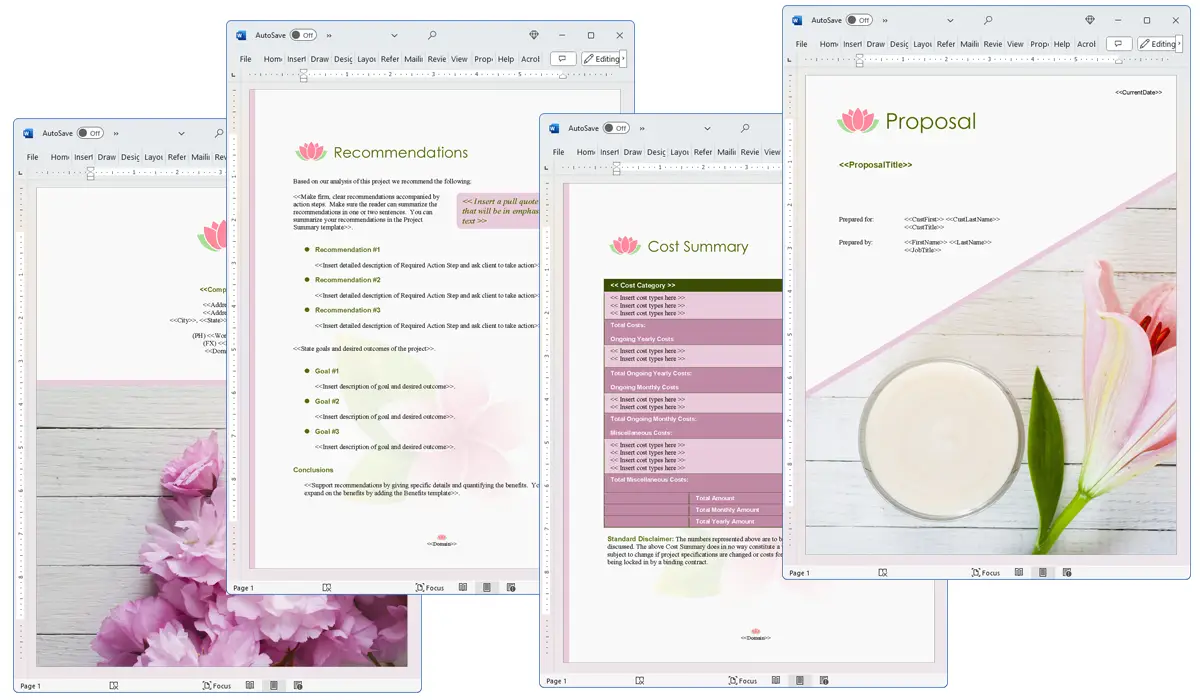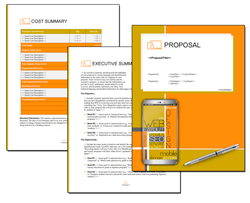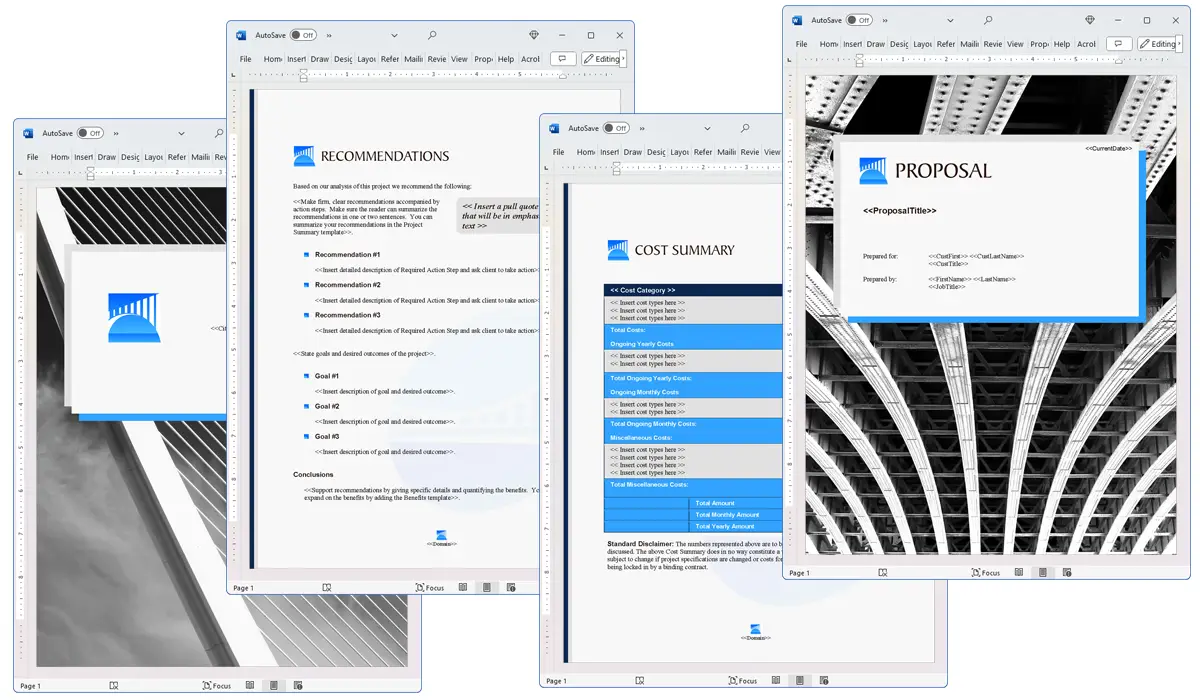What is the Restrictions chapter used for?
Proposal Kit Professional Bundle adds more design themes, all six Contract Packs,
a project management library, and Expert Edition software.

Illustration of Proposal Pack Hospitality #2
We include this Restrictions chapter template in every Proposal Pack, along with thousands more. You assemble this chapter with others in various combinations to create custom-tailored business proposals, plans, reports, and other documents. Proposal Packs apply custom visual designs to the templates, giving the final documents a consistent professional finish.
 DOWNLOADABLE, ONE-TIME COST, NO SUBSCRIPTION FEES
DOWNLOADABLE, ONE-TIME COST, NO SUBSCRIPTION FEES
Overview of the Restrictions Chapter
In the field of business proposals, clarity and precision are paramount. The Restrictions chapter serves an important role in this context by outlining any limitations or constraints that might impact the project or agreement being proposed. This chapter ensures that all parties involved are aware of any factors that could restrict the actions or expectations surrounding the fulfillment of the proposed terms.
How is the Restrictions Chapter Used?
The Restrictions chapter is typically used to communicate clear boundaries or limitations associated with a proposal. By defining what cannot be done, or what is explicitly excluded from the scope of a project, this chapter helps in setting realistic expectations for all parties involved. It is particularly crucial in ensuring that the proposal aligns with legal, technical, or policy-related constraints that the proposing organization must adhere to.
What is Included in the Restrictions Chapter?
This chapter typically includes:
- Legal Restrictions: Any legal constraints that affect how the project should be executed.
- Technical Limitations: Details of technological or logistical limitations that might impact the project.
- Geographical Constraints: If the project is limited to certain locations or if there are location-specific restrictions that need to be considered.
- Resource Limitations: Constraints related to budget, personnel, or other resources that could impact the project's completion.
- Time Restrictions: Specific deadlines or time frames that need to be adhered to within the scope of the project.
Use Case Examples for the Restrictions Chapter
- In a proposal for a construction project, detailing that certain materials cannot be used due to environmental regulations.
- In a technology upgrade proposal, mentioning that the project must be completed within existing IT infrastructure limitations.
- For a marketing campaign proposal, specifying that the campaign will only target certain geographical areas due to brand alignment strategies.
- In a research proposal, indicating that certain methods or tests cannot be used due to ethical concerns.
- When proposing partnership agreements, outlining activities that are excluded from the partnership due to company policies or industry standards.
Key Takeaways
- Importance of Clarity: The Restrictions chapter is crucial for setting clear boundaries and expectations in a proposal.
- Prevent Misunderstandings: It helps in preventing misunderstandings by clearly outlining what cannot be done within the scope of the project.
- Facilitates Compliance: Ensures that the proposal complies with legal, ethical, or technical requirements.
- Aids in Resource Management: Helps in planning by defining the limitations related to resources and capacities.
- Enhances Proposal Realism: Contributes to the overall realism and feasibility of the proposal by acknowledging and planning around existing constraints.

Illustration of Proposal Pack Web #5
 What Our Clients Say
What Our Clients SayI just started working with this product, and it is great. It has tons of great content."
IT Manager
Restech Information Services
 4.7 stars, based on 845 reviews
4.7 stars, based on 845 reviewsAlternate Chapters
Related Chapters
Document Layouts Using the Restrictions Chapter

The Restrictions chapter and other chapters are integrated into a Word document as illustrated here in the Proposal Pack Infrastructure #3 design theme. There are hundreds of design themes available, and every design theme includes the Restrictions chapter template.
A proper business proposal will include multiple chapters. This chapter is just one of many you can build into your proposal. We include the complete fill-in-the-blank template in our Proposal Pack template collections. We also include a library of sample proposals illustrating how companies in different industries, both large and small, have written proposals using our Proposal Packs. This template will show you how to write the Restrictions.
We include a chapter library for you to build from based on your needs. All proposals are different and have different needs and goals. Pick the chapters from our collection and organize them as needed for your proposal.
Using the Proposal Pack template library, you can create any business proposal, report, study, plan, or document.
 Ian Lauder has been helping businesses write their proposals and contracts for two decades. Ian is the owner and founder of Proposal Kit, one of the original sources of business proposal and contract software products started in 1997.
Ian Lauder has been helping businesses write their proposals and contracts for two decades. Ian is the owner and founder of Proposal Kit, one of the original sources of business proposal and contract software products started in 1997.By Ian Lauder
 Published by Proposal Kit, Inc.
Published by Proposal Kit, Inc.


 Cart
Cart
 Facebook
Facebook YouTube
YouTube X
X Search Site
Search Site